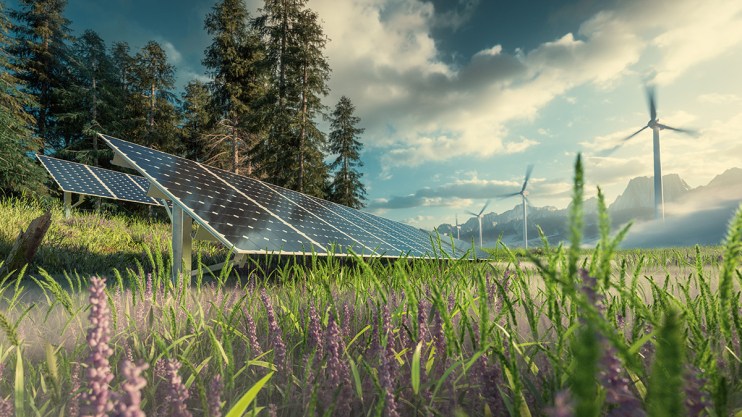Renewable energy: the way forward for Europe?

In European energy, Russia’s invasion of Ukraine has defined the market so far in 2022. Gas prices have soared, exacerbating inflation. How organizations, consumers, and governments respond could mark the beginning of an evolution in European energy. Is renewables the way forward for Europe?
Renewed interest?
Policymakers know they must move swiftly on renewables, but dealmakers are already aware of the benefits. Renewables deals came to the fore last year, such as when Engie and Crédit Agricole bought Spanish renewable power producer Eolia for €2.2bn.
The trend has carried into 2022, despite the macroeconomic turmoil that has characterized much of this year. In fact, three of the five biggest EMEA energy deals in H1 fell into the renewables sphere.
Danish power company Ørsted sold a 50% stake in a UK offshore wind farm to French financial giants Axa and Crédit Agricole for €3.6bn. And PE giant KKR was busy with two mega-deals this past Spring: the acquisitions of France’s Albioma for €2.6bn and Britain’s ContourGlobal for €5.5bn.
There were also sizable deals in the wider EMEA region: Nigeria’s Seplat acquired Exxon Mobil’s local offshore shallow water business, Mobil Producing Nigeria, for €1.4bn and Abu Dhabi National Oil Company and Abu Dhabi National Energy Company bought a 67% stake in United Arab Emirates renewables operator Masdar for €1.2bn.
Inevitable growth?
The need for green energy investment has long been evident, and the market is swiftly maturing. Europe is committed to its net zero targets and the activity of financial sponsors shows they have high conviction in the growth of renewables. And Europe’s recent decision to define natural gas and nuclear as clean energy sources under the EU taxonomy is likely to see greater interest in these assets. Accelerated by Russia’s invasion of Ukraine, increasing M&A activity in Europe’s renewables sector seems inevitable.